DO IT YOURSELF PROJECT
Building the Audio Note Ongaku Amplifier
1) The Chassis
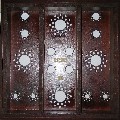 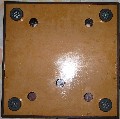
The chassis is made of wood stained with rosewood stain. It is parted into three sections with the middle section reserved for power supply and the other two sections for the left and right channel of the amplifier, as you can see from the above left picture. As this a modular design, they are further sub-divided into sub-sections for individual modules. In total, there are nine modules. For left and right section, they consist of two amplify modules, two 211 power vacuum tubes modules and two output ternimal modules. In the middle section, it houses the power, the filter circuit and the volume control modules. All connections to this amp are accessed from the bottom.
2) The Transformers
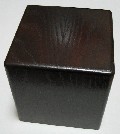 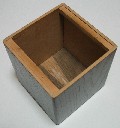 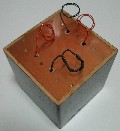
The power transformers used for this project are original Audio Note transformers. Of course, they are the entry-level version as I cannot afford the silver version or the Japanese Tango transformer. As I don't quite like the bare metal look of these original Audio Note transformers, I have decided to build a wood cover with a copper base to house them. Again, they are stained with original rosewood color.
3) The Amplifier Modules
  
Majority of the parts used in the amplifier modules are of high quality so that the sound will not be compromised. They are the Kiwame resistors; and the Wima, the Rubycon Black Gate and the Jensen oil capacitors. The pre-amp tubes used are the same 6072A and 5687WB tubes used in the original Ongaku.
4) The Vacuum Tube Modules

This module consists of the 211 tube socket and the variable resistor for hum control. My choice of 211 tubes include the American military VT4C and Audio Note selected and matched 211 tubes.
5) The Volume Control Module

The volume control is from Noble with silver coxail cables soldered onto it.
6) The Output Modules

The output module is the simplest with only the gold-plated terminal block.
7) The Power Modules
 
From the left the above picture, you can see filter circuit make up of the original choke in bare metal and the two LCR England capacitors. At the right is the main power circuit for the four 5AR4 power tubes
8) The Completed Project
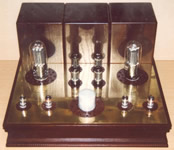
|






